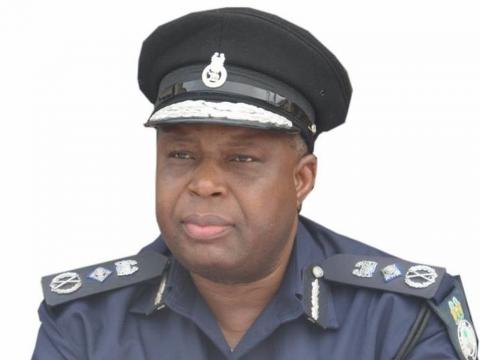By: Stephen T. Fomba
The Sierra Leone Police has a long history of protecting the interest of the ruling party of the day, which includes using excessive force against political oppositions and other groups and ordinary citizens who oppose or deny support for the ruling government. However, public awareness and a stance against police brutality is realized now more than ever before, with a strong demand for the immediate reformation of the national police force.
While I plan to write an article in the near future questioning whether the Sierra Leone Police (SLP) is a force to protect or appease, this contribution points out the challenges involved in any attempt to reform the “Force for Good” that may not be so good after all.
It surprises me to read and listen to various voices requesting the resignation or removal from office of the Inspector-General of Police, as the solution to the current crisis besetting the institution; or even as if his removal will reform the police force. If those Sierra Leoneans calling for Richard Moigbeh’s sacking believe a change of guard alone would reform the police force, then they lack the understanding of where the power of the Sierra Leone Police truly rests. To understand how difficult it would be to reform the Sierra Leone Police, we need to understand how it was established and who controls it. It is not controlled by its Inspector-General.
It is the Sierra Leone 1991 Constitution that establishes the Sierra Leone Police in Section 155 and makes as its head the Inspector-General of Police. Do not get so excited to conclude that I am contradicting myself. The same Constitution in Section 156 establishes the Police Council with absolute control of the police force.
Although the Inspector-General is a member of the Police Council, he is merely a member of that powerful body. As a matter of fact, the appointment of the Inspector-General by the President is subject to the advice of the Police Council. So, who make up the Police Council? Subsections (1a-f) of Section 156 of the Constitution establishes the Police Council with the following members: 1. the Vice- President of Sierra Leone; 2. the Minister of Internal Affairs; 3. the Inspector-General of Police; 4. the Deputy Inspector-General of Police; 5. the Chairman of the Public Service Commission; 6. a member of the Sierra Leone Bar Association; and 7. two other members appointed by the President, with the approval of Parliament.
The Vice-President, the right-hand man of the President, is the Chairman of the Police Council. You read that right. The member of the Bar Association on the Police Council does not only get there by nomination of that body, which is required, but must also be appointed by the President. The Secretary of the Police Council is “the Permanent Secretary of the Ministry responsible for matters relating to the Police,” according to Section 156(3) of the Constitution, which is the Ministry of Internal Affairs. And although the Inspector-General of Police is responsible for the operational control and administration of the Police Force, his actions and decisions must be to the control and direction of the Police Council.
Now think about this. What do we expect from a police force that is managed by the deputy to the President, an appointed Minister of Internal Affairs—a political position, the Chairman of the Public Service Commission appointed by the president, an appointed Inspector-General whose fate is dependent on the very Council, and other presidential appointees? The answer is simple: we would and should expect the Sierra Leone Police to protect the interest of the government in power.
To make matters worse, the Police Council has the powers of appointing the ranks of police officers. According to Subsection 2 of Section 157 of the Constitution, the power “to appoint persons to hold or act in an office in the Police Force from the rank of Assistant Superintendent of Police and above, excluding the Inspector-General of Police, (including the power to make appointments on promotion and to confirm appointments), and to dismiss, reduce in rank and to exercise disciplinary control over persons holding or acting in such offices” is solely vested with the Police Council. And for ranks below Assistant Superintendent of Police, the Police Council is also responsible for promotions, demotions, and discipline with the recommendation of the Inspector-General of Police.
Furthermore, the Constitution states that the effective and efficient administration of the Sierra Leone Police is the responsibility of the Police Council, with the prior approval of the President. The keyword to make note of in the sentence above is “prior.” Also, the authority and powers of command of officers and men of the Police Force is vested in the Police Council. The same council is responsible for “the conditions of service, including those relating to enrolment and to pay, pensions, gratuities and other allowances of officers and men of each unit and deductions therefrom,” as stated in Section 158(3c) of the Constitution.
So, for police officers to gain promotions, avoid serious disciplinary actions, or even dismissal from the force, they must meet the performance expectations of the Council of Police. With high unemployment rate in the country and the consequences of political disfavouring, how do we expect police officers to stand up against decisions and expectations of such a powerful Police Council led and controlled by politicoans?
If Sierra Leoneans are therefore serious about reforming the Sierra Leone Police, we must take the fight to the Constitution to amend the very sections that establish the Police Council to remove the politics that has affected its independence and kept it short of accomplishing its purpose of serving the people of Sierra Leone and protecting their lives and properties.
© 2019 Politico Online









